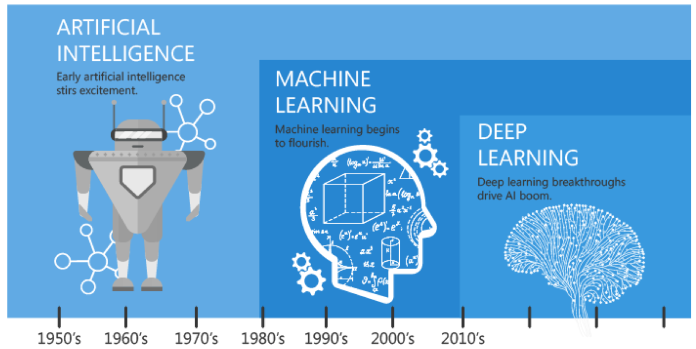Innovation in the life sciences industry has rapidly shifted due to big data and analytics powered by Artificial Intelligence (AI). This technology can potentially give impetus to innovation, increase production, and produce better results.
From drug discovery to clinical trials, AI streamlines processes, identifies novel pathways, and accelerates the pace of breakthroughs. This not only expedites the development of new treatments but also enhances the overall efficacy and safety of pharmaceutical products.
Moreover, Artificial Intelligence acts as a catalyst for the genesis of novel business models within the pharmaceutical sector. Companies can optimize resource allocation, minimize inefficiencies, and create more adaptive strategies by seamlessly integrating AI technologies. This enhances operational efficiency and opens doors to novel approaches in drug development, personalized medicine, and patient care.
Enhancing the Life Science Industry with AI-powered Solutions
Life Sciences have now realized the potential & importance of using AI to automate operations in the industry. The technology is being used to identify and validate drug development, design novel compounds, monitor trial phases, and aid marketing teams in the launch and marketing of products.
- Optimizing Clinical Trials:
Clinical trials generate a considerable amount of data, but how this data moves through the trial process can be overly complex, require manual effort, and lead to inefficiencies. AI-powered solutions have simplified this data management throughout the life cycle by generating structured, standardized, and digital data elements.
The AI solution also intelligently interprets data elements, automatically populating required reports and analyses in downstream systems. For clinical site investigators, it streamlines data-gathering tasks, allowing a focus on value-added services like patient engagement. It also further leverages insights gained to enhance subsequent trials.
- Streamline the manufacturing process
The artificial Intelligence platform improves productivity and efficiency and maintains transparency throughout manufacturing activities. Artificial intelligence (AI) solutions have the scaling theory of managing businesses and their production lines, minimizing errors, gathering real-time information, and supporting trials. Moreover, it helps monitor every production cycle stage and optimize the manufacturing processes and production planning.
Employing AI-powered manufacturing intelligence services and solutions helps researchers comprehensively understand the manufacturing landscape. The predictive analysis offers actionable recommendations to enhance yield, address quality issues, and unlock additional capacity.
- Identify and engage influential key opinion leaders.
In our contemporary, interconnected world, identifying the relevant set of KOLs can get overwhelming due to the sheer volume of HCPs (Healthcare Professionals) out there. Unlocking an influential KOL is a challenging task, and pharma companies can consider investing in collaborating with KOL management software that can assist them in locating expert medical professionals for particular products or therapeutics. In addition, by classifying them into different tiers, life science or pharma companies can engage with digital thought leaders depending on their areas of expertise.
- Optimize Physician and Patient-centric solutions
Artificial Intelligence can access patients’ health records and recommend the best course of action. For example, AI lets health professionals recommend the dosage if the disease mutates, rewrite the drug development strategies, and offer a more effective substitute by continuously monitoring several parameters.
AI also enables Life sciences companies to harness patient and healthcare professionals’ narratives—from complaints and medical inquiries to social media posts. Advanced AI capabilities intelligently mine data from various sources and capture the authentic “voice” of both patients and HCPs.
This information is then transformed into actionable insights, providing valuable inputs to enhance decision-making across the value chain and respond effectively to the evolving needs of both patients and healthcare professionals.
- Improve Marketing Effectiveness
Manufacturers increasingly emphasize brand engagement in response to the changing dynamics of customer preferences and heightened competition. However, a significant challenge arises as companies grapple with crucial questions regarding optimizing their marketing investments. Questions such as which channels to invest in, who to engage with, and what content is most effective become pivotal.
In this context, AI can also assist companies in generating recommendations for channel spend. This ensures effective campaigns and informs future budget allocations. It analyzes target personas, predicting behavioral responses across various channel-content combinations. This approach allows for the alignment of marketing messages throughout the customer journey. Aside from AI, digital marketing agencies, such as Prosper Online, can also help you push your healthcare marketing even further.
AI in Healthcare: Need of the Hour
Life sciences companies are emphasizing innovation to speed up time to market, control costs, comply with regulations, and improve patient outcomes.
Also, healthcare providers are under constant pressure to increase their efficiency and cut costs while maintaining or even improving the service range due to the challenging situation in the healthcare sector.
By utilizing an Artificial Intelligence Platform, life science sectors can encourage a culture of innovation and give impetus to every process. Firms that have already implemented such technologies have experienced efficient optimization of resources and information exchange between stakeholders.
By employing efficient AI platforms, different life sciences sectors can integrate digital transformation into their processes and become more competent, agile, and high-performing.
Analyzing the Best Technology Solutions to Support Life science Infrastructure
The COVID outbreak challenged the pharmaceutical industry – from catering to the rising demand for drugs and vaccinations to supply issues, there had never been so much pressure on the pharma sector.
Implementing novel technologies became the need of the hour. It helped companies focus on cutting-edge solutions and patient-centric business models that boost capacities and provide real-time patient outcomes. Besides increasing productivity and efficiency and accelerating the drug creation process, AI-based technology offers relevant insights and makes them available across the enterprise.
Additionally, pharma companies are increasingly using AI to identify Key Opinion Leaders to assist them with clinical trials. These leaders can effectively be discovered, profiled, and engaged using a KOL management platform.
AI-powered platform – konectar enables pharma or life science companies to identify and engage HCPs effectively. The platform serves as a bridge connecting life sciences companies with key opinion leaders. In addition, it helps the life sciences sector analyze the current drugs, their market, and effectiveness and prepare for the launch of new products.













